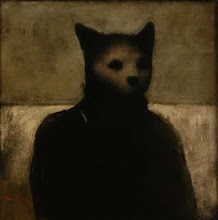
It is the academically overlooked eastern influences on western culture that I am trying to unearth in these posts. Also, the influences that have impacted me, personally.
I mentioned in the last article the influence of the Beat writers on 1960s counterculture. These authors brought about a new take on eastern thought, weaving its philosophy into a more American, loose-fitting, frontier-style ideology. While this movement was born and bred in the States, another huge influence on the hippie era actually came from the pen of a German-born, Swiss author.
Despite winning a Nobel prize for literature in 1946, Hermann Hesse's popularity in North America didn't peak until after his death in 1962. It was then that the themes he had been exploring since just after the turn-of-the-century found appeal with the university students in the western world--themes that explored "an individual's search for authenticity, self-knowledge and spirituality." (wikipedia)
The titles popular with this audience included: Steppenwolf, Journey to the East, and Siddhartha (an interpretation of the story of Buddha).
"Buddha's way to salvation..." said Hesse, "...(Is) not just learning and knowing, but spiritual experience that can be earned only through strict discipline in a selfless life."
Again, in Hesse, we get a hybrid philosophy in the sense that he was initially steeped in the schools of German Romanticism and European theosophy. He was also very knowledgeable when it came to the work of the western scholars, such as, Nietzsche, Schopenhauer, and Carl Jung. (The latter two themselves were quite interested in Eastern culture and thinking).
Again, the western take on the East is a merging of two separate hemispheres of the world--like two sides of the brain--fusing into one school of thought. It is not the ideology of the Zen monks in Japan, nor is it specifically Tibetan or Indian. Just as the Christianity of the southern United States is not that of the ancient catacombs of Rome, rather, the former serves as an extension of the latter.
It becomes it's own thing, and serves to influence new schools of thought, in turn.
Like the Siddhartha of Hesse's novel, the author, too, was often at odds with the world of humankind. He was strongly opposed to Hitler and the Nazis (they eventually banned the publishing of his work); he questioned the western educational system; and he believed in the individual pursuit of searching inward for life's answers instead of through the material forms of the world.In many ways, it seems his life's work was focused on the transcendence of pain in the modern world, a theme well understood by Buddhists and other spiritual followers alike.

Ah, the Herm.
ReplyDelete